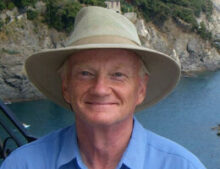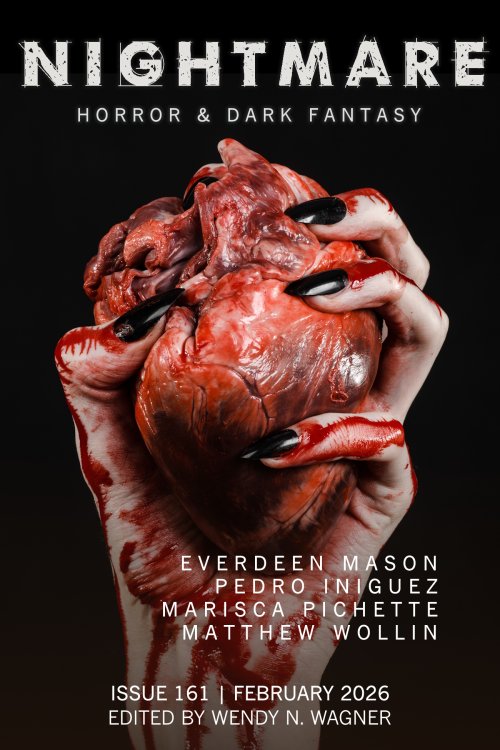CW: torture.
As so many pieces of this length do—and I’m not the only writer who will report this—the idea and storyline for “The Dark Devices” came to me in a very visceral, very disturbing (wait for it) flash. The writing itself? A little research on Pieter’s period and country before that could happen. And a surprise ending or else. (Thank you, Rod Serling, O’Henry, Clarke and so many other short fiction masters who left their mark on me as a young writer half a century ago.)
At the tiny abbey in the province of Tasselt—the only abbey in the region with both an abbot and his monks and a dozen nuns as well (a temporary matter that had somehow become permanent)—the abbot, whose skin had gotten paler even as the veins beneath it had become more pronounced, and who preferred darkness to light of any kind, had taken over the West section of the abbey, with its many, darker rooms. This had driven the nuns quietly, month by month, into the eastern “Dorter” rooms of the abbey, the dormitory, where they either pretended they didn’t know what he had become or really did not know. The four monks under the abbot’s care, who knew quite well what their abbot was doing, what he was becoming, but said nothing, had moved to the Chapter House, putting sleeping mats on its floors.
The candles the abbot used in his dark rooms, along with the iron devices he had had the cellarer’s workers collect or forge for him from the village, had grown fewer and somehow dimmer, as if the abbot did not really need light to see. There were no longer any screams, as there had been early on—the screams of cowgirls and vinegirls and even a boy or two. More and more, the abbot seemed to prefer using his devices on those who wouldn’t or couldn’t scream, and Pieter wondered what kinds of people these would be. Were they mute villagers, those who couldn’t, by the nature of their throats, speak or moan or scream? Were they monks who wanted to have their faith tested, and so did not scream? Or was it this: The abbot chose anyone he wished from the village—prostitutes, children, the old and feeble, the strong and muscular—and performed quick, simple surgeries before he applied his devices, making screaming impossible?
The footsteps that Pieter—one of those four monks, the biggest of them, and the one most upset first by the screams and then later by the silence—could hear in the abbot’s rooms sounded barefoot, some light, some heavy, and sometimes there were no footsteps at all as the abbot worked through the night. Sometimes Pieter wondered whether the abbot was satisfied even with the dead—that is, any human body, alive or dead, was acceptable, for what he was doing with his devices. Might that not explain the silences as well?
Or were the bodies really dead? There was no smell, and should there not be, and increasingly so? Or had the abbot found, in the books he was known to read—also in darkness, it seemed—a way to keep bodies from rotting . . . so that he might cut them and flay them, praying as he did, and remove limb after limb, head after head, as Pieter knew he did because of what he and the other monks were asked to bury in the vineyard at night, parts that never smelled.
Pieter knew that he had much to confess (even witnessing what was happening in the abbey was enough, was it not?), but there was no one to confess it to except the abbot himself, and doing that was impossible. When he tried, catching the abbot in the hallways during the day, the man’s eyes barely opened, as if in pain from the light, and the man refused him, or, worse, invited him to confess later, in one of his rooms, not in the church itself. “Darkness,” the abbot would say hoarsely, voice no more than a whisper, the pale face not looking at him, “is important for a ridding of sins, Pater Pieter.” And Pieter would hear the clink of metal, a memory from the previous night, and know he had been a fool, for how foolish a man is to think he should confess to one who has so much more to confess than he does.
When Pieter learned one night from another monk, Broeder Jeroen, that a nun had been summoned to the abbot’s East chambers, it was what he had been fearing: That the abbot would turn his attention to those who inhabited the abbey. But to start with a nun—Sister Anika, whom Pieter knew and had spoken to more than once in the sacristy and gardens—rather than a monk? This he had not foreseen.
Did he fear this turn of events only because he did not want a bride of Christus, and one so young, to die in body this way? Or because to accept it meant that Evil could wear the face of a man of the cloth without any consequence? Or because, if Pieter acted against it, he would be acting against a divine design that he, as mere mortal, could not possibly understand, and so his action would be the sin of hubris?
Or was it because, if he did not take action, no number of confessions for the rest of his life would ever be enough, and living would not matter, God or no God?
• • • •
When he had reached the Dorter room where the abbot had the woman, following the whimpers he knew could only be hers, drowned out as they were by the mounting sounds of clanking metal, he could not see at first. Candles in the hallway had led him to the wooden door of the room, but once inside, his eyes were for a moment completely blind.
As he began to see better—not total darkness, but shapes within darkness—he heard the abbot grunt and a metal device hit the wooden floor as a woman’s voice, near the floor to his right, cried out, in Latin, “Serva me! Filius Dei, serva me!” Save me! Son of God, save me!
To his left an upright figure, its arm raised, something long and dark in what Pieter imagined to be its hand, came toward him.
• • • •
When Pieter had done what he had come to do, and the figure was lying at his feet, and the woman was no longer in the darkness of the room, having fled once he had blindly untied her, he felt the slickness on his hands and his face and dropped the metal thing he was holding. Had the nun said anything as she had fled? He could not remember. Would she ever know who had come for her? He would not tell Broeder Jeroen or the other monks about what he had done—there would be conjecture, but they would not know for certain, and the archbishop in Utrecht would send no one to find out, embarrassing as it all would be—so how would she know?
He stopped rubbing his hands together, stopped rubbing the slickness on his face, and stood in the room, the dim candlelight of the hallway through the open door still behind him. He did not turn. He could sense faintly the devices in that room, though he did not know what they were. There was a slickness on the floor, too, near his shoes, and here and there near the devices something that had dried long ago. He did not want to see the devices. They did not matter now.
And yet he found he could not move. The devices, their metal, the faint candlelight suggesting their forms, held him, and he could hear a voice saying, Isn’t there someone who should use them now, Pieter? Isn’t there someone?








